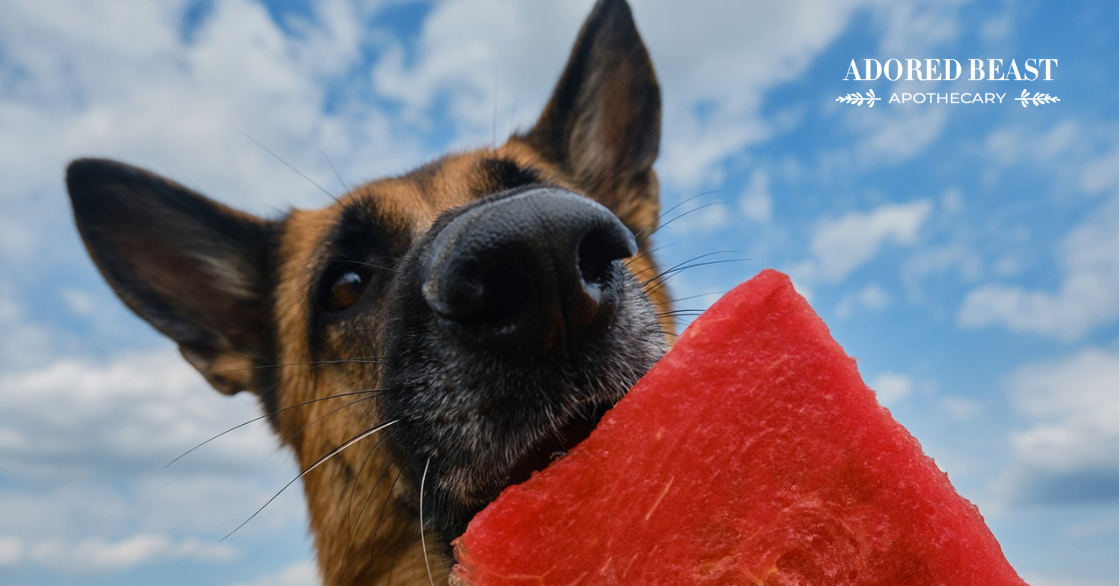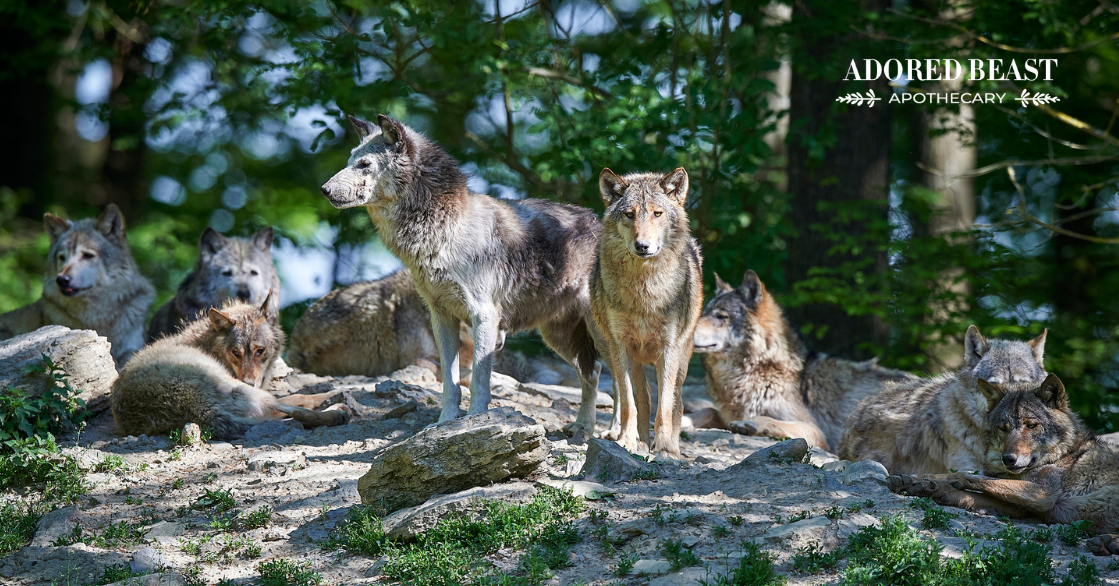Watermelon… the ultimate summer fruit! We go through at least a watermelon a week in our house. And as soon as the dogs see it, they start drooling.
But can dogs eat watermelon? Should we be sharing this summertime treat when we sit down with a big fresh bowl?
Let’s digest this…
Can Dogs Eat Watermelon?
Can dogs eat watermelon? Yes! Our dogs drool when they see watermelon because they know they get some too! And we love that connectedness of being able to share food with our four-legged family members.
And to be honest, they’ve perfected those “puppy-dog eyes” that we just can’t ignore.
So, why do we love sharing? There are many benefits of watermelon for our dogs (and ourselves):
1. Most dogs love the taste and crunch. And we love natural snacks that we know are safe and healthy without a whole bunch of added ingredients!
2. Watermelon is a low-calorie fruit, so it’s not going to add a lot to your dog’s daily calorie count. This is helpful if you’re watching your pet’s weight. It also has no fat or cholesterol – another plus.
3. It’s chock full or vitamins (A, B6, and C), minerals, and fibre!
4. Watermelon contains valuable prebiotics. Remember, those are like the fertilizer to feed probiotics, which together help encourage a healthy gut microbiome.
5. It’s high in antioxidants. In fact, watermelon has more of the antioxidant lycopene than any other fruit or vegetable. It also has high concentrations of the antioxidant beta-carotene. And we know that antioxidants help fight harmful free radicals, which research shows are linked to many different diseases – including cancer!
6. Watermelon is about 92% water, so it’s a great option to keep your pet hydrated in the summer!
7. As described in Traditional Chinese Veterinary Medicine (TCVM), watermelon positively affects the heart, bladder, and stomach. It is cold in nature, and clears heat. Since many – if not most – of our domesticated dogs run on the warmer side, watermelon can help to internally regulate body temperature, cooling things down, and hydrating in the process.
Important note: Watermelon does have natural sugars (like most fruits), so you don’t want to overdo it! And if your dog is diabetic, offer in very small amounts to avoid the insulin spikes.
What About the Seeds and Rind?
Can dogs eat watermelon seeds? Some people warn about the seeds in watermelon as posing a threat to dogs. This isn’t because they’re toxic, but rather because there is a small potential of an intestinal blockage. But it’s a very small potential. If you dog accidentally eats a missed seed, there’s no need to panic. Your pet will be just fine.
But really, we don’t like eating watermelon seeds, so our dogs probably don’t either. So, as you’re cutting up pieces for your pet, just try and pick out all the seeds! Or, if you want an even easier option, opt for a seedless watermelon!
The rind is a definite no-go. It’s tough, very, very difficult to digest, and poses a much greater risk for intestinal blockage. We recommend giving only the red flesh of the fruit.
TIP: Some cats love watermelon too, so offer a little bit to your feline friend and see if they like it! It’s just as good for them as it is for our pups!
How to Feed Your Dog Watermelon
The simplest way to feed your dog watermelon is to cut it up in small pieces and hand it right over. It doesn’t need to be fancy for your pup to enjoy it.
You can also cut it up small and add it to their dinner plate!
Or, whip up a quick batch or watermelon ‘pupsicles’ to help beat the heat! Cut up your watermelon, removing seeds as you go, and put about a cup in the blender. Add 1/2 cup of blueberries and 1/4 kefir, and blend until smooth. Pour the mixture into small moulds or an ice cube tray, and freeze. Once frozen, pop one out and feed it as a fresh, cool treat!
Another yummy option is to make a nice watermelon basil salad. Keep it simple for your animal friend, then spice yours up with a little red onion and feta cheese. Yum!
TIP: To choose the perfect watermelon, look for one that’s firm, symmetrical, and heavy for its size. Look for a yellow spot on the underside – this comes as the result of sitting on the ground and ripening in the sun. If the spot is very pale or white, it may have been picked too soon and may not be ripe.
So, can dogs eat watermelon? Yes! A resounding yes. Watermelon is a great treat to add to the regular rotation of fruits and vegetables in your furry friend’s diet. The next time you’re enjoying a bowl, be sure to share!












